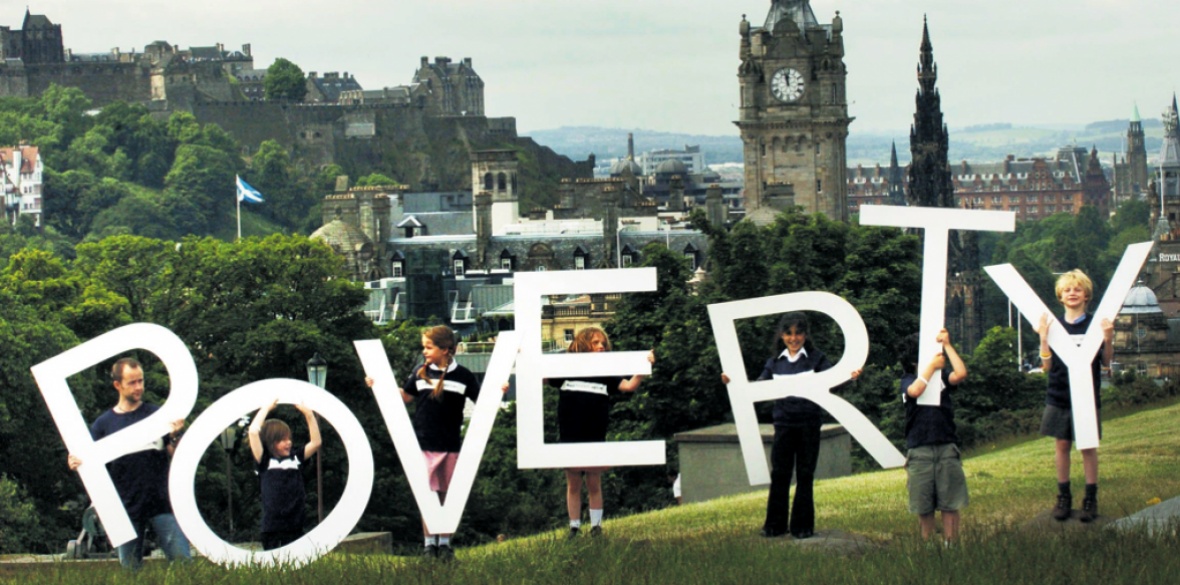This is the last article you can read this month
You can read more article this month
You can read more articles this month
Sorry your limit is up for this month
Reset on:
Please help support the Morning Star by subscribing here
THERESA MAY proclaimed that “austerity is over” and the budget on October 29 will prove or disprove that claim. Even if she proves it, there is no guarantee that it will end in Scotland.
Recent research by the Scottish Parliament revealed that Westminster imposed a budget cut of 1.8 per cent from 2013-17 on the block grant to the Scottish government.
The same research revealed that it in turn has imposed a bigger cut on councils of 7.1 per cent.
However, Audit Scotland in its audit of Scottish councils points out that council budgets have fallen by 9.1 per cent since 2010/11.
A good example of what this means is that the Scottish government received what was in effect a standstill grant last year from Westminster and the Scottish government could have done the same in Scotland.
Instead a choice was made to cut council budgets. A good example of this is the City of Edinburgh council received the lowest budget settlement since devolution this year. Even a standstill budget would have meant cuts but less severe than those already made.
Audit Scotland makes clear how stark the situation is for Scottish Councils when it states: “The reductions in funding from the Scottish government present councils with a major challenge to continue to make savings and deliver services at current levels.”
What does this mean? In one year alone 2016-17 councils in Scotland have 2,200 fewer workers — nearly 1 per cent of the total workforce in Scotland — than they had the year before.
Not only that but it cost £78m to councils to reduce their workforce. Job loss on this scale would see a task force looking at how this could be prevented, but it’s ignored, which is why Unison calls it “the silent slaughter.” Citizens only notice when services are taken away from them and charges are made on services to make up for the funding shortfall.
But it’s worse than that. In 2016-17, 20 Scottish councils drew on usable revenue and capital reserves. Council revenue reserves fell by £32 million in 2016-17 and overall usable reserves (capital and revenue) fell by about £33m. This is why the Chartered Institute of Public Finance and Accountancy uses the term “financial stress” to describe this drastic action action taken by 20 Scottish councils.
Audit Scotland warns that “some councils risk running out of General Fund reserves within two to three years if they continue to use them at levels planned for 2017-18.” Northampton today, North of the border tomorrow?
It doesn’t have to be like that. Choices can be made. When the SNP came to power in Holyrood in 2007, it said it would get rid of the “unfair council tax” — a tax based on property values from last century.
It still has to do so, despite issuing jointly with Cosla the Just Change report of 2015. It lies forgotten on a shelf, no more than a press release and a photo opportunity, by an administration whose political priority on return to Holyrood in 2016 was to restore the docking of puppy dog tails for hunting dogs.
The SNP government could choose to act on it, but it won’t. It could choose to use its taxation powers to fund public services and make up for the cuts it has imposed on councils, but it won’t. It could choose to give councils powers to introduce charges such as a tourist tax, but it won’t .
Scottish councils face some tough decisions. On the one hand, as the Accounts Commission review of the financial outlook for Scottish councils put it, “The Accounts Commission recognises that the financial challenges facing councils will inevitably mean councillors need to make difficult choices and take decisions that may not sit neatly with the manifestos they were elected on in May 2017.”
It does not have to be inevitable. On the left hand they could work with citizens, trade unions, third sector organisations and other councils to force the parliament created to make a difference and work to introduce the changes badly needed by councils recognising the value of local government in Scotland.
Austerity from Westminster or the turbocharging of Westminster’s austerity by Holyrood for Scottish councils needs to stop. Choices can be made. As Uncle Joe once said, “the future is unwritten.”
Gordon Munro is a Labour councillor for Leith Ward, City of Edinburgh council











